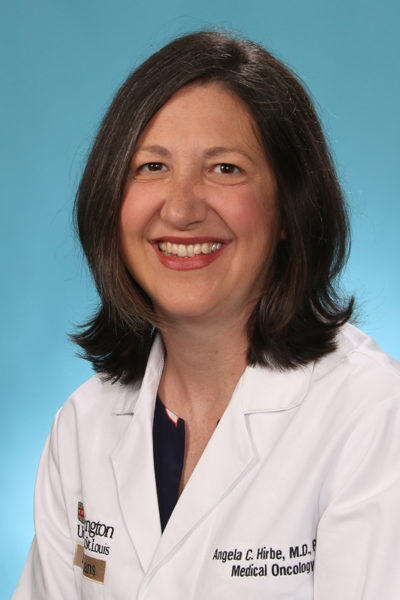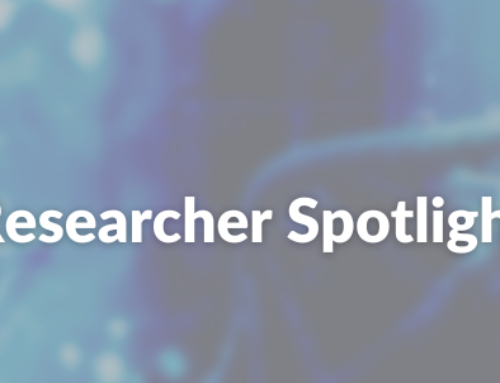 What is your name, title and institutional affiliation?
What is your name, title and institutional affiliation?
Angela Hirbe, M.D., Ph.D.
Assistant Professor of Medicine and Pediatrics
Director, Adult Neurofibromatosis Clinical Program
Division of Oncology, Sarcoma Section
Washington University School of Medicine
What is your role, i.e., what do you do?
I am a medical oncologist in our Adolescent Young Adult (AYA) program where I treat patients with sarcomas, rare cancers of bone and soft tissue, as well as patients with cancer predisposition syndromes including NF1. Most of my research focuses on malignant peripheral nerve sheath tumors (MPNST), the aggressive sarcoma that occurs in NF1 patients. Our goal is to use tumor genomic information to better understand the pathogenesis of MPNST to develop better diagnostic modalities and treatments for MPNST.
Please share your favorite discovery from your NF research. What makes this particular discovery rise to the top?
We recently discovered chromosome 8 gain as a universal event in MPNST, but is not seen in Plexiform neurofibroma precursors. This exciting finding has paved the way for further projects aimed at early cancer detection, prognostication, and therapeutic target discovery.
In your mind, why is data sharing/open science important? How has this practice improved your research?
Data sharing is essential to moving science forward in a timely manner. That is especially the case for rare tumors in which the only way to obtain large enough data sets to draw meaningful conclusions requires multi-site collaboration. Having a central place to allow data sharing for NF1makes collaboration easy and has been key to my research efforts which involve collaborators around the country.
Where do you see NF research going in the next five years?
I hope that the exciting work that my young lab has begun will move forward into clinical trials that will result in earlier diagnosis of cancer in NF1 patients, better treatments, and overall better outcomes.
Dr. Hirbe is currently an Assistant Professor of Medicine and Pediatrics in the Division of Medical Oncology in the Department of Medicine, and Director of the Adult Clinical Neurofibromatosis Program at Washington University in St. Louis. Clinically, she cares for patients with bone and soft tissue sarcomas, other rare tumors, and patients with cancer predisposition syndromes including Neurofibromatosis Type 1, Li Fraumeni, and Retinoblastoma. Her laboratory is focused on genomics and mouse models of soft tissue sarcomas, particularly MPNST, with the goal of identifying drivers that can be exploited as diagnostic biomarkers or therapeutic targets.



